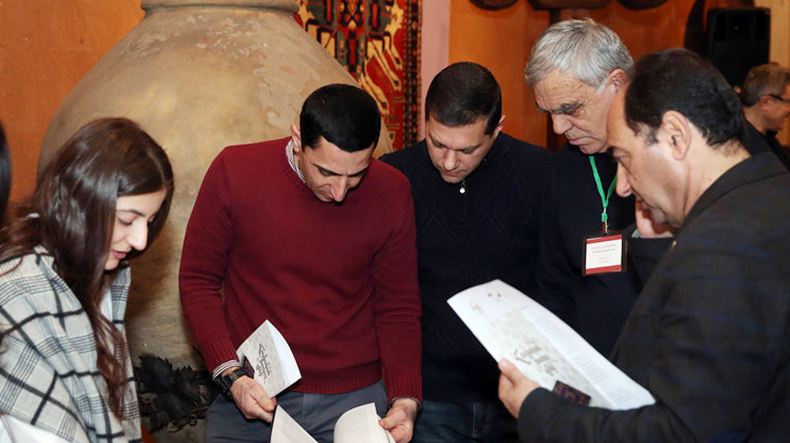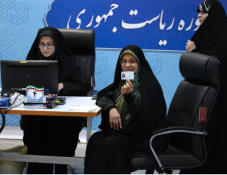
Comprehensive review of genealogy and history of Armenian viticulture and wine culture presented in Yerevan
The presentation of "Armenian Vine and Wine" book - a comprehensive bilingual book on the genealogy and history of Armenian viniculture and viticulture took place on February 2 in Yerevan.
The event was organized by GIZ Integrated Biodiversity Management, South Caucasus (IBiS) programme in cooperation with Ministry of Agriculture, Vine and Wine Foundation of Armenia and International Center for Agribusiness Research and Education (ICARE).
The aim of the book is to preserve and promote sustainable use of traditional grape varieties in Armenia through raising public awareness.
"This book is for all readers who realize that wine is not just a drink, which is industrially made independently of its ties to the land, the history, the traditions and the social context", - as one of the authors describes the book. It provides thorough information on the "Armenian Vine and Wine"; from the diversity of grape varieties and clones (including aborigine and endangered ones) to traditions and culture of places where amazing diversity of native grapes give birth to unique wines. The book aims to increase awareness among government, academic, business community and other stakeholders, thus pinpointing future prospects for developing viticulture and winemaking in Armenia and highlighting the place of Armenian vine and wine from a global perspective.
Representatives from the RA Government and Ministries, ambassadors, representatives from educational and scientific institutions, international organizations and local NGOs, private sector companies were hosted during the event.
During the event the guests had an exclusive opportunity to communicate with book authors and to purchase books from the first batch with authors' signatures. The price of book is 38,000 AMD. All the income generated from the sale of the book will be allocated to reprint the book and to support education, research, sustainable conservation and use of aborigine and endangered grape varieties in Armenia.
To note, Integrated Biodiversity Management, South Caucasus (IBiS) programme is implemented by Deutsche Gesellschaft für Internationale Zusammenarbeit (GIZ) GmbH and commissioned by the German Federal Ministry of Economic Cooperation and Development (BMZ). The programme aims to develop strategies to support the sustainable management of biodiversity and ecosystem services across sectoral and administrative boundaries.
Newsfeed
Videos






























